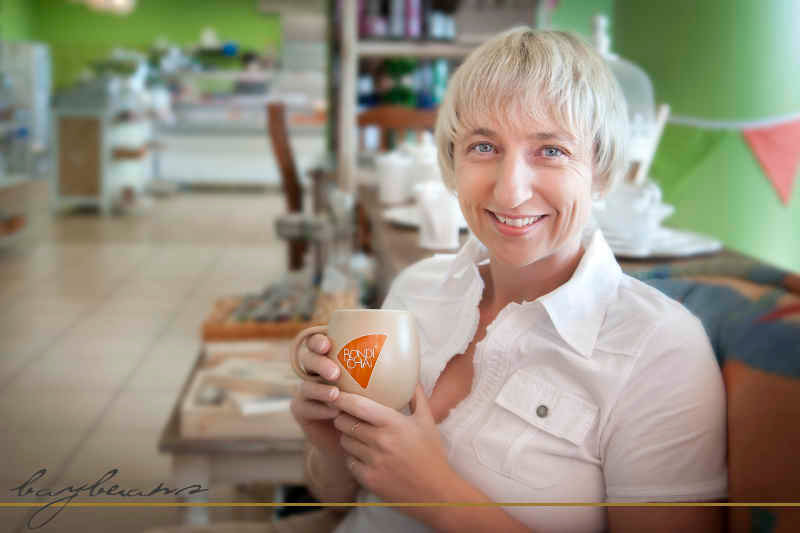I recall over ten years ago, my first discussion with Martin Buggy, the co.-founder of Bondi Chai - an Australian company dedicated to producing high quality chai latte for both the local and international market. His passion and dedication was testament to the quality chai product he produced, and the reason we partnered with Bondi Chai almost immediately.
Ten years on, Chai latte is becoming one of the most popular non-coffee drinks in Australian cafés! With Australian's being one of the most mature and loyal customers when it comes to cafe culture, it is no surprise it is the quality, taste and Australian branding of Bondi Chai that has us standing proud.
A 2018 report from 'Square' places the average cost of chai latte at $4.57 for a regular - thats 38c cents higher than the next most expensive drink being hot chocolate. I don't know about you, but when I'm paying almost $5 for my chai, I want it to taste just as good as I expect and to have that fabulous mouthfeel from a deliciously smooth and creamy chai latte.
While some café owners are falling prey to the confusion surrounding chai latte and many of the syrups
and premixes available, most appreciate the quality and recognition of a premium product. Few café owners have the time or resources to make an authentic Indian chai masala - it can take half an hour to make an ‘authentic’ chai masala (what we call chai latte) by steeping tea leaves and raw spices.
The best hope café owners have is to use a pre-mix that retains as much of that authenticity as possible while being mindful of the resources required, however, customer feedback, the barista's input and the cafe owners knowledge should all be considered. Australian consumers especially can very quickly determine when the chai latte they’ve ordered is premium quality chai mix or a syrup based drink.
Most chai drinkers would say syrups are the furthest from the mark, complaining that they’re too sickly-sweet and have a taste reminiscent of artificial flavours. By considering what your chai is made from, whether it uses natural ingredients, how its prepared by the barista and how it ultimately tastes, you will both benefit your cafe's reputation and respect your customers loyalty.
We’re never surprised when café owners who use syrup based products tell us that ‘chai doesn’t sell!’ We fell in love with chai latte years ago because, luckily, our first experience was with a good quality product – but too often we hear from people who are disappointed with bad chai latte and desperate to know how they can find a solution for their customers - it's easier than you'd think!
Ten years on, Chai latte is becoming one of the most popular non-coffee drinks in Australian cafés! With Australian's being one of the most mature and loyal customers when it comes to cafe culture, it is no surprise it is the quality, taste and Australian branding of Bondi Chai that has us standing proud.
A 2018 report from 'Square' places the average cost of chai latte at $4.57 for a regular - thats 38c cents higher than the next most expensive drink being hot chocolate. I don't know about you, but when I'm paying almost $5 for my chai, I want it to taste just as good as I expect and to have that fabulous mouthfeel from a deliciously smooth and creamy chai latte.
While some café owners are falling prey to the confusion surrounding chai latte and many of the syrups
and premixes available, most appreciate the quality and recognition of a premium product. Few café owners have the time or resources to make an authentic Indian chai masala - it can take half an hour to make an ‘authentic’ chai masala (what we call chai latte) by steeping tea leaves and raw spices.
The best hope café owners have is to use a pre-mix that retains as much of that authenticity as possible while being mindful of the resources required, however, customer feedback, the barista's input and the cafe owners knowledge should all be considered. Australian consumers especially can very quickly determine when the chai latte they’ve ordered is premium quality chai mix or a syrup based drink.
Most chai drinkers would say syrups are the furthest from the mark, complaining that they’re too sickly-sweet and have a taste reminiscent of artificial flavours. By considering what your chai is made from, whether it uses natural ingredients, how its prepared by the barista and how it ultimately tastes, you will both benefit your cafe's reputation and respect your customers loyalty.
We’re never surprised when café owners who use syrup based products tell us that ‘chai doesn’t sell!’ We fell in love with chai latte years ago because, luckily, our first experience was with a good quality product – but too often we hear from people who are disappointed with bad chai latte and desperate to know how they can find a solution for their customers - it's easier than you'd think!

 RSS Feed
RSS Feed
